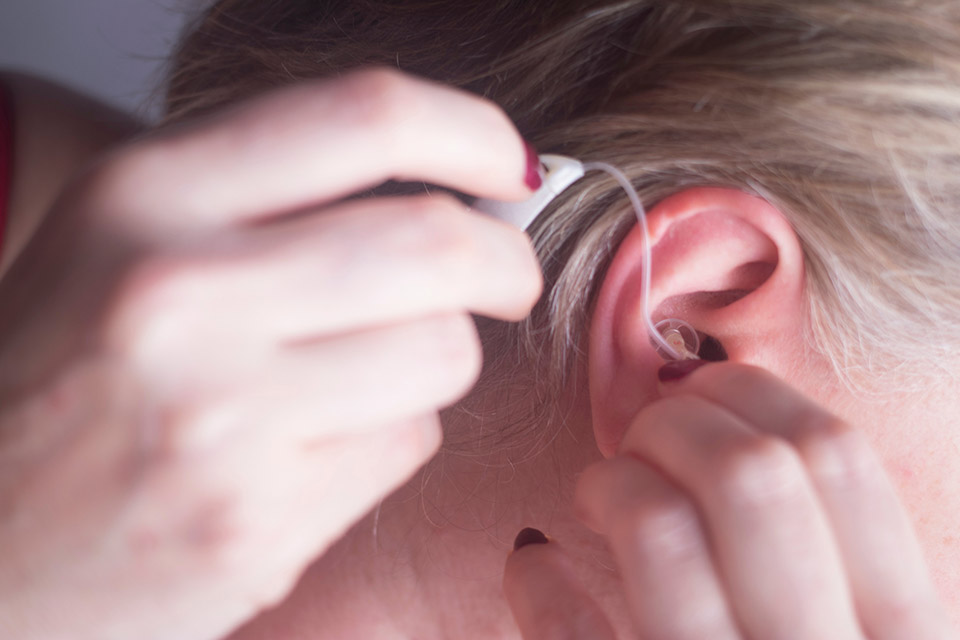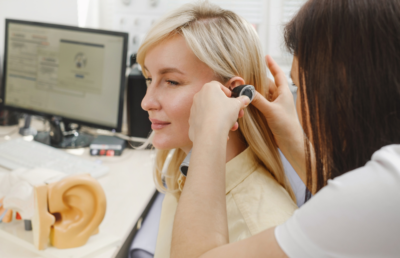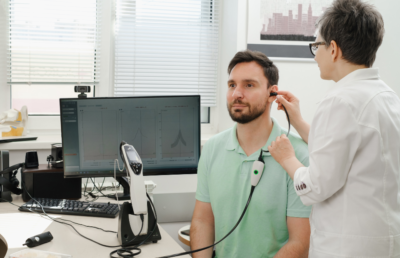Unilateral hearing loss means that hearing is normal in one of your ears but there is hearing loss in the other. Find out more about its symptoms, causes, and treatment options.
What is unilateral hearing loss?
Most people with hearing loss have what’s known as binaural hearing loss, meaning that both ears are affected. Unilateral hearing loss occurs when hearing in one ear is within normal limits, while the other ear has some degree of reduction in hearing. It can range from mild to profound in severity and can develop either at birth or later in life. Unilateral hearing loss is a quite common condition — an estimated 60,000 Americans experience it. This condition affects all genders and ages. If the hearing loss is very severe or profound, we’re talking about single-sided deafness (SSD).
How does unilateral hearing loss affect hearing?
Trouble localizing sounds
Your brain knows where a sound is coming from by which ear receives the sound first. This is known as localization or directional hearing. If you can only hear well from one ear, you may have difficulty pinpointing which direction a sound is coming from.
Struggling to hear in noisy environments
Your brain knows how to filter out sounds that aren’t useful or significant. If one ear isn’t helping, this will be more difficult. You may find it challenging to single out a person’s voice in a noisy environment or might find yourself constantly asking people to repeat themselves in conversation.
Having a hard time telling how loud a sound is
When you hear a sound, your brain receives signals from the nerves located in both ears and uses this information to process sounds. Therefore, you hear sounds louder when they’re perceived through both ears than if they’re perceived through one ear only. Turning up the music or the TV’s volume too high is a warning sign.
Causes of hearing loss in one ear
- Menière’s disease
- Acoustic neuroma
- Viral or bacterial infection
- Physical damage to the ear
- Head trauma
- Circulatory system disorders
- Genetic or inherited disorders
Note that sometimes a specific cause can’t be identified, or unilateral hearing loss can be due to a combination of factors.
How to treat unilateral hearing loss?
Treatment of a unilateral hearing loss includes both surgical and non-surgical options. A unilateral hearing loss is normally treated with hearing aids or hearing implants such as bone conduction devices.
Hearing Aids
When you have mild to moderate unilateral hearing loss, a hearing aid is the most common treatment option. Your hearing aid is programmed to increase the loudness of the incoming sounds so that they’re audible and compensate for the reduction in hearing. A hearing aid may be an option for you if it’s able to make speech loud and clear enough to meet your listening needs.
Contralateral routing of signal (CROS) devices
A CROS system involves two separate devices that both look like a hearing aid. One of the devices is indeed a hearing aid worn on the better ear, while the other device contains a microphone that picks up the sounds from the other side and sends them to the hearing aid on your better ear. CROS hearing systems don’t restore hearing in the poorer hearing ear. But they do allow you to pick up sounds from the poorer ear side.
Bone-anchored hearing aids (BAHA)
A bone conduction or bone-anchored hearing system includes an external sound processor that attaches to a headband or a surgical implant. The sound processor picks up sound from the poorer-hearing side and sends it to the better-hearing ear by bone conduction. The goal of the bone-anchored hearing system is to provide sound awareness on the poorer-hearing side. Note that bone-anchored hearing systems cannot restore hearing in the ear with hearing loss. Instead, they allow you to be aware of sounds on that side as well. They therefore cannot help with sound localization either but may be a good option.
If you have any questions, feel free to contact us and we’ll be happy to help. If you think you may be experiencing hearing loss, book an appointment for a consultation to get your hearing checked. Book an appointment today!





